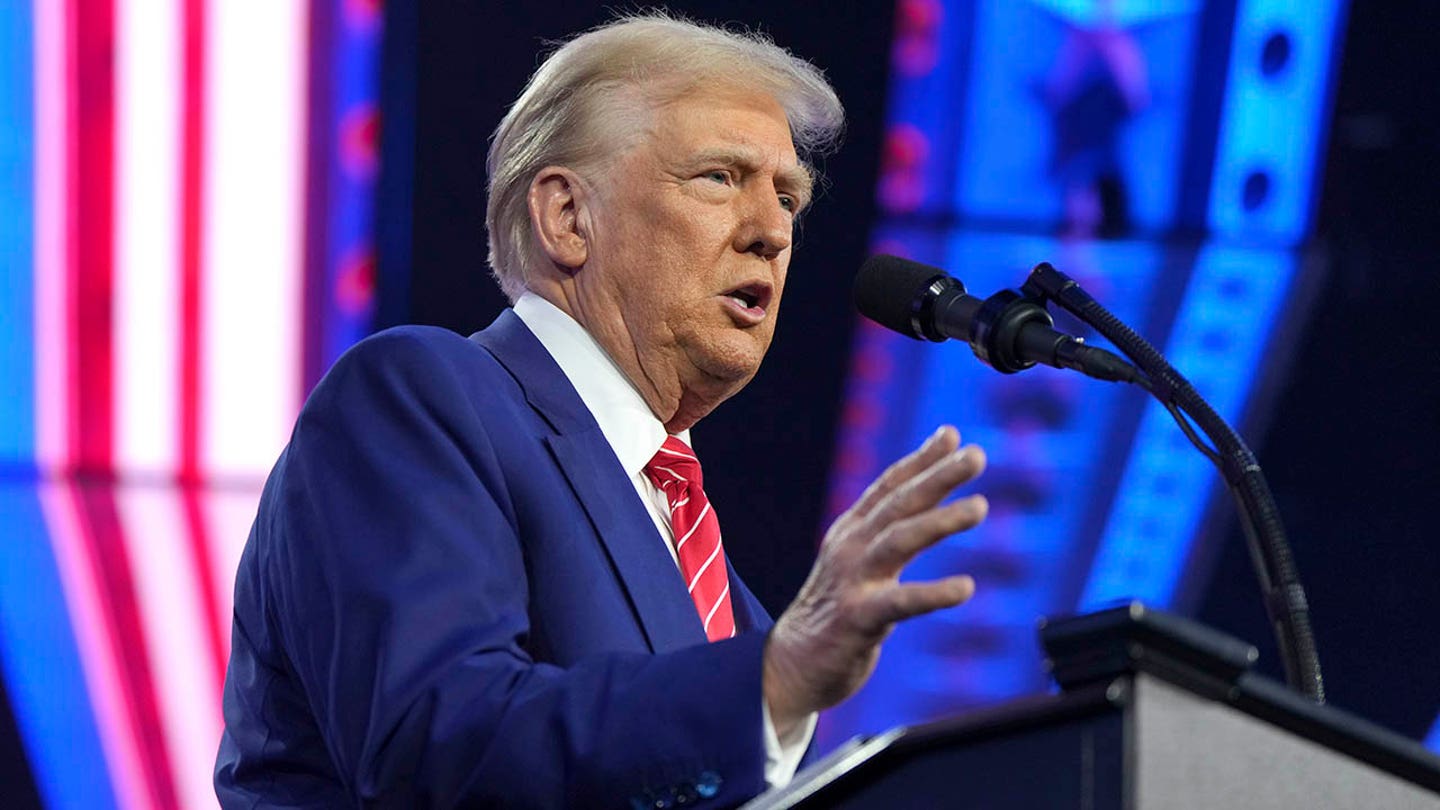
Trump threatens lawsuit over 'blue slips' as top GOP senator bucks demand to bend Senate rules for nominees
Entities mentioned:
- Donald Trump: Power, Control, Ambition
- Chuck Grassley: Duty, Professional pride, Loyalty
- Senate Democrats: Control, Competitive spirit, Influence
- Chuck Schumer: Power, Influence, Competitive spirit
- Cory Booker: Influence, Control, Loyalty
- Andy Kim: Influence, Control, Loyalty
- Alina Habba: Ambition, Power, Recognition
- Pam Bondi: Power, Control, Loyalty
Article Assessment:
Credibility Score: 75/100
Bias Rating: 55/100 (Center)
Sentiment Score: 35/100
Authoritarianism Risk: 65/100 (Authoritarian Tendencies)
Bias Analysis:
The article presents multiple viewpoints, including Trump's criticisms and Grassley's defenses. While it gives slightly more space to Trump's perspective, it balances this with context and opposing views, maintaining a relatively centrist position.
Key metric: Judicial Appointment Efficiency
As a social scientist, I analyze that this article highlights a significant conflict between the executive and legislative branches over the judicial appointment process. The 'blue slip' tradition, while not law, has become a point of contention that impacts the efficiency and partisan nature of judicial appointments. Trump's threat to sue over this practice indicates an escalation in the power struggle between the presidency and the Senate. This conflict has the potential to alter long-standing Senate traditions and could lead to increased polarization in the judicial nomination process. The resistance from Senator Grassley, a member of Trump's own party, demonstrates the complexity of this issue and the tension between party loyalty and institutional norms.

Trump tells Grassley to tell Democrats 'go to HELL' over blocked judicial nominees in Senate
Entities mentioned:
- Donald Trump: Power, Control, Indignation
- Chuck Grassley: Duty, Loyalty, Wariness
- Senate Democrats: Control, Resistance, Power
- Alina Habba: Ambition, Professional pride, Self-preservation
- Judge Matthew Brann: Justice, Duty, Professional pride
Article Assessment:
Credibility Score: 70/100
Bias Rating: 55/100 (Center)
Sentiment Score: 30/100
Authoritarianism Risk: 65/100 (Authoritarian Tendencies)
Bias Analysis:
The article presents multiple viewpoints, including Trump's criticism and Grassley's defense of the blue slip tradition. While it gives more space to Trump's perspective, it also includes factual context about the constitutional process and recent judicial rulings.
Key metric: Judicial Branch Appointments
As a social scientist, I analyze that this article highlights a growing tension between executive power and Senate traditions in the judicial appointment process. Trump's frustration with the 'blue slip' custom reflects a broader struggle for control over the judiciary, which has significant implications for the balance of power in the US government. The slowdown in judicial appointments during Trump's current term, compared to his first, indicates a shift in the political landscape and the effectiveness of opposition tactics. This conflict could lead to further polarization in the appointment process and potentially alter long-standing Senate norms, affecting the composition and perceived legitimacy of the federal judiciary in the long term.

Judges approve Trump’s pick as interim US Attorney in Manhattan
Entities mentioned:
- Jay Clayton: Ambition, Power, Professional pride
- Donald Trump: Control, Power, Influence
- Federal Court Judges (SDNY): Duty, Justice, Obligation
- Senators: Wariness, Control, Duty
- Alina Habba: Ambition, Power, Professional pride
- John Sarcone III: Ambition, Power, Professional pride
- Geoff Berman: Duty, Justice, Professional pride
Article Assessment:
Credibility Score: 75/100
Bias Rating: 55/100 (Center)
Sentiment Score: 45/100
Authoritarianism Risk: 35/100 (Generally Democratic)
Bias Analysis:
The article presents a fairly balanced view of the situation, including both successes and challenges in Trump's US Attorney appointments. While it notes controversies, it also acknowledges when appointments have been unchallenged, maintaining a generally neutral tone.
Key metric: Rule of Law Index
As a social scientist, I analyze that this article highlights the ongoing tension between executive power and judicial oversight in the appointment of US Attorneys. The approval of Jay Clayton by federal judges, despite his lack of prosecutorial experience, suggests a shift in the balance of power between the executive branch and the judiciary. This appointment, coupled with the resistance to other Trump nominees, indicates a complex interplay of institutional checks and balances. The article underscores the importance of judicial independence and the role of the Senate in confirming key legal positions, which directly impacts the Rule of Law Index. The varying responses of different district courts to Trump's interim appointments further illustrate the decentralized nature of the US legal system and the potential for regional variations in the application of federal law.

Judge to decide Trump appointee Alina Habba's fate as US attorney
Entities mentioned:
- Alina Habba: Ambition, Power, Control
- Donald Trump: Power, Control, Loyalty
- Judge Matthew Brann: Duty, Justice, Righteousness
- Julien Giraud Jr.: Self-preservation, Justice, Freedom
- Desiree Grace: Professional pride, Duty, Justice
- Pam Bondi: Loyalty, Power, Control
Article Assessment:
Credibility Score: 75/100
Bias Rating: 45/100 (Center)
Sentiment Score: 35/100
Authoritarianism Risk: 65/100 (Authoritarian Tendencies)
Bias Analysis:
The article presents multiple viewpoints, including those of the Trump administration, the defendant, and legal experts. While it highlights concerns about the appointment process, it also includes the DOJ's defense of its actions, maintaining a relatively balanced perspective.
Key metric: Rule of Law Index
As a social scientist, I analyze that this case highlights a significant challenge to the traditional process of appointing U.S. attorneys, potentially impacting the Rule of Law Index. The unprecedented maneuvers by the Trump administration to keep Habba in power, despite lack of Senate confirmation, raise concerns about the separation of powers and the integrity of the justice system. This situation could weaken public trust in legal institutions and potentially set a precedent for future administrations to bypass established appointment procedures. The case also demonstrates the tension between executive authority and legislative oversight, which is crucial for maintaining checks and balances in a democratic system. The outcome of this decision could have far-reaching implications for the interpretation of federal vacancy laws and the limits of presidential power in appointing key law enforcement officials.

Justice Department opens investigation into New York attorney general who won civil fraud case against Trump
Entities mentioned:
- Justice Department: Power, Control, Justice
- Letitia James: Justice, Determination, Professional pride
- Donald Trump: Revenge, Self-preservation, Power
- Abbe Lowell: Loyalty, Righteousness, Indignation
- Trump Organization: Self-preservation, Greed, Power
- National Rifle Association: Self-preservation, Influence, Power
- Alina Habba: Loyalty, Ambition, Professional pride
- Wayne LaPierre: Greed, Power, Self-preservation
Article Assessment:
Credibility Score: 70/100
Bias Rating: 40/100 (Lean Left)
Sentiment Score: 30/100
Authoritarianism Risk: 65/100 (Authoritarian Tendencies)
Bias Analysis:
The article leans slightly left, presenting the investigation as potentially politically motivated. While it includes multiple perspectives, the framing and source selection appear more sympathetic to James' position.
Key metric: Rule of Law Index
As a social scientist, I analyze that this article highlights a concerning trend of potential political retaliation within the US justice system. The investigation into Letitia James, who successfully prosecuted a civil fraud case against Trump, raises questions about the separation of powers and the independence of the judiciary. This action could significantly impact the Rule of Law Index, as it suggests a possible abuse of executive power to target political opponents. The timing and nature of the investigation, coupled with similar probes into other Trump critics, indicate a pattern that could erode public trust in governmental institutions and the fair application of justice. This situation may lead to a decrease in the US Rule of Law Index score, particularly in factors related to constraints on government powers and absence of corruption.